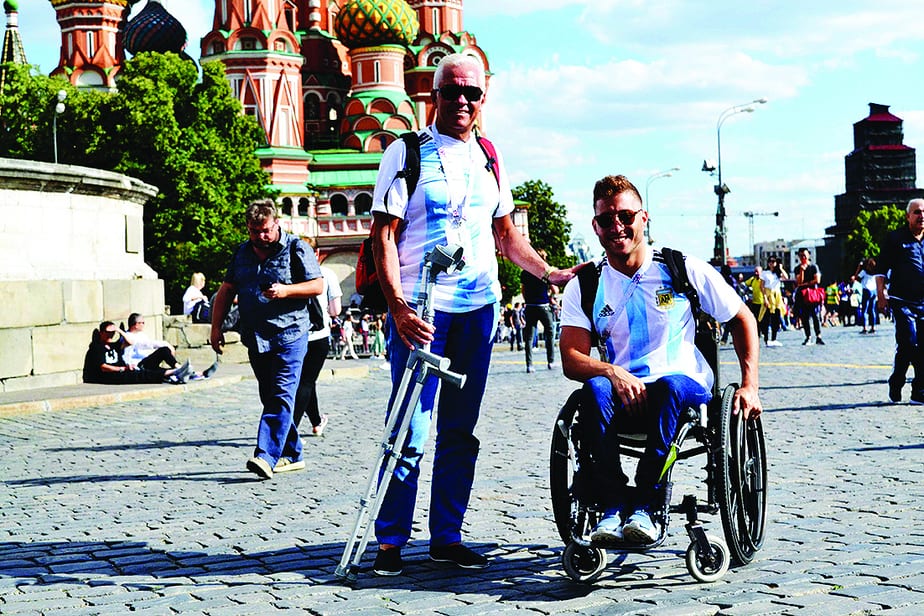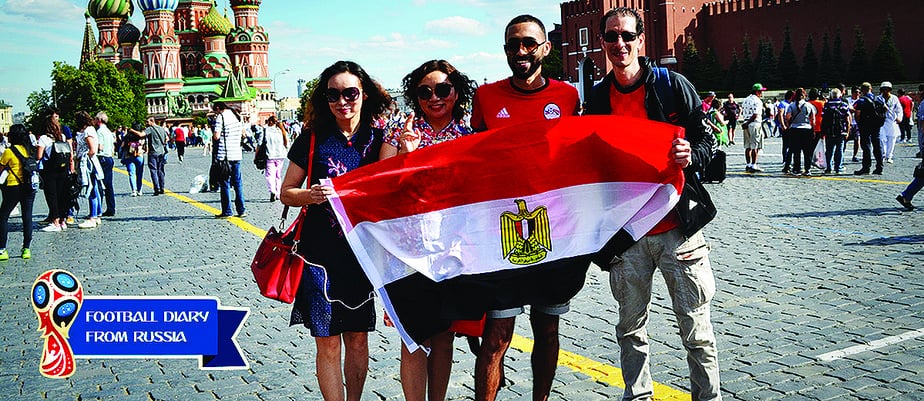The ‘fan zone’ at Kremlin has brought diverse nations together
A German football fan was busy showing some ball-control skills to his grandchildren in front of the Saint Basil’s Cathedral at the historic Red Square on Monday afternoon.
Yes, you got it right, a German. Those who know their world history would find it a bit strange to see a man from Berlin kick a ball around at the place where Joseph Stalin once delivered a speech on November 7, 1941, to the erstwhile Soviet Army during World War II.
If you’re a travel writer, who also takes interest in Russian history, then you can sit on the street and rewind the clock back to the biting November cold of 1941. The street, once lined with blocks of Soviet-style apartments, is now dotted with shops, sidewalk cafes and hotels.
Just opposite the Kremlin, there’re some fine brand stores and an ice-cream parlour, which now caters to football lovers from around the world.
A Spanish family of seven cooled themselves on a sunny afternoon with ice-cream cones, but their two young daughters looked across the Red Square with open-mouthed wonder as they marvelled at the Kremlin’s red wall — one of the most symbolic constructions in Russia, which dates back to 1147 when Moscow was founded.![]()

The World Cup, in fact, has helped merge sports with history. And the Fan Zone at Red Square has brought the world closer. The zone may be the point of attraction, but the older generation preferred to walk towards the mausoleum, where Russia’s legendary leader Vladimir Lenin’s body is preserved till today. Visitors still queue to see the hero of Bolshevik Revolution, but it was shut owing to the massive rush during the World Cup. Still, they didn’t miss the opportunity to take quick selfies with the statue of Georgy Zhukov, the most decorated General in the history of Russia and the erstwhile Soviet Union.
“I’ve come all the way to cheer for Argentina,” said Lucas Poggi, a differently-abled fan from Buenos Aires. As his father pulled his wheelchair, Poggi flashed a smile and added, “I just hope Argentina stay in the competition.”
The FIFA World Cup has united the world — a much-needed intervention in the current climate. It’s a sight to behold when you see Russians dance with Brazilians or a Mexican put his arms around two strikingly beautiful Russian girls and pose for a snap at the city’s nerve centre. What could be a better advertisement for world peace?





